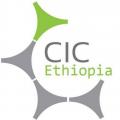Project Database


Building on the CRGE/NDC Implementation assessment; guided by the 10-years perspective development plan as well as Improving the narrative of the NDC to align with the current 10-years perspective plan and also guided by international experience in NDC enhancement process (using the outcomes of the Paris agreement and the rule...

GGGI’s program on promoting solar irrigation pumping systems and mini-grids is designed to accelerate the deployment of solar irrigation solutions contributing towards climate-smart agriculture practices. In Ethiopia, energy access has always been an issue hindering economic development. Though some reasonable progress has been made in urban and peri-urban areas, the...
Given the increasing global demand for food, feed, industrial raw material and energy crops, BiomassWeb aims at contributing to food security in Sub-Saharan Africa through harnessing productivity and efficiency gains in the whole biomass-producing, processing and trading system. This will be achieved by an increased integration of all value web...

A growing number of African countries are amongst the fastest growing economies worldwide. Still the level and speed of lifting a vast majority of the African people from poverty remains low. A key question, therefore, is how the growth can transform the African economies towards efficient and competitive engines that...

This project aims to conduct an integrated global assessment of the costs of action and inaction against land degradation. Land degradation is a global problem, affecting about a quarter of global land area. Moreover, about half of the global very poor live on degraded land. Given that the poor heavily...

The Ethiopia Climate Innovation Center (ECIC) supports Ethiopian small and medium enterprises (SMEs) that are developing innovative solutions that address climate change challenges. We aim to accelerate the development, deployment and transfer of climate technologies by providing SMEs a set of holistic country-driven support services, including early-stage financing, business support...
Reducing Emissions from Deforestation and Forest Degradation (REDD) is an effort to create a financial value for the carbon stored in forests, offering incentives for developing countries to reduce emissions from forested lands and invest in low-carbon paths to sustainable development. "REDD+" goes beyond deforestation and forest degradation, and includes...
